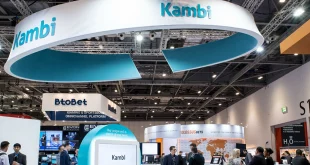
Are schools of bloated sharks an accepted cost of doing business? In the second and final part of this series, Kevin Dale navigates through the choppy waters of minimum bet liabilities, player restrictions, volume incentives, premium charges and how to adapt to the new ecosystem.
_____________________________
Amongst the player to player, or P2P models, pools companies have welcomed winners for longer. But high takeout rates always meant that pickings for the pros were slim. If new pools operators get the margin right, they are a real contender in the ecosystem. Currently, though, a shark’s edge needs to be big and the fish or whales aplenty, if they’re to have some fun.
Exchange betting really did change things dramatically: no restrictions and great prices were a revolution. Instead of the simple one-way movement of funds from customers to operators, sharks were able to make a living too. The problem for operators is that fish (and whale) funds were now being shared with their own successful customers. In the poker ecosystem, it’s not dissimilar: the cut that poker-rooms take as money moves from the weaker to the stronger players can be the smaller slice of the fish pie…
Historically, operator incentives were always designed to encourage volume; Betfair’s initial commission rates and the poker-room rake structures were no different. The problem with applying this pricing strategy to all though is that sharks were not only welcome but rewarded with cashback or lower takeout.
Their unrestricted volume meant that they were contributing to a significant portion of revenues: on paper, some of them were more ‘profitable’ than our old whale friends. A few became celebrities in their own right and were feted by star-struck operators. Yes, some provided much-needed liquidity for the pools, exchanges and poker tables but to treat them all as VIPs was maybe a step too far.
The ecosystem had clearly changed: the shark nets had slipped away. Some might say for the better, but where there’s a winner’s there’s a loser. Happy schools of bloated sharks must mean that the operators are losing out. During this same period, market growth has been strong and so for much of the noughties, maybe this went unnoticed. But it’s still the same pond, and it’s still the same players. The only difference is that the sharks are thinning out the shoals. Stretching the analogy a bit further: there’s blood in the water!
Betfair’s ‘premium charge’ on sharks was a new turning point. Unfair, perhaps, a bit greedy, yep, but possibly astute too? This change was designed to limit the effects of natural selection. Anyone exhibiting shark-like characteristics (a big fat P&L) was asked to pay an additional commission rate on their winnings. Winners are still welcome yes, but get in line and buy a permit.
On the Premium Charge’s 10-year anniversary, there are no candles but as Betfair continues to dominate the exchange world, you could see this as sensible management of their own ecosystem. On the other hand, their exchange has hit a plateau and their brand investment in recent years has all been directed at their fixed odds product. Whilst the mass exodus to other exchanges didn’t quite materialise, there’s still some bad blood out there and the competition is decent.
Moreover, the poker-rooms haven’t followed suit with their own version of a premium charge either so it does beg the question: how should P2P sites treat winners? Whilst shark taxes might seem harsh, reconfiguring your pricing schemes and redefining your VIPs – from turnover to customer profitability metrics – makes a lot of sense.
PokerStars parent Amaya took a different approach again. In the last couple of years, they launched new products such as Zoom Poker and Spin & Go, increasing the luck component of the game at the expense of skill – thereby reducing a shark’s edge. This plus a bit more cash invested in freerolls meant a broader distribution of pots to the fish, i.e. the desired result.
Whilst the backlash from the regular poker community (especially the sharks) was similar to the one at Betfair 10 years ago, these measures do at least speak to the conservation of the ecosystem. Good for the fish is good for liquidity – which, in turn, is good for the sharks. Of course, it’s also good for Amaya which makes it tough to argue this point. It’s never going to be easy convincing a shark that fish retention or quotas is in their interests too – especially when they’ve hunted through the good times. To the saying: “take care of the fish and the sharks will find their own way in”… we need to add “but don’t expect them to thank you for it!”
Meanwhile fixed odds bookmakers, under a bit of pressure from regulators, are introducing minimum bet liabilities (MBL). These are offered on a known quantity such as televised races or major leagues and tournaments – because the ‘shark edge’ is likely to be slim here. But allow the sharks to feast at will and the fixed odds trawlermen will go out of business. The sooner this is recognised by the Fisheries Commission the better.
Bizarrely, in recent weeks, there’s been a competition to announce the best MBL terms: either with higher minimum bets or applying these to more markets. In what might seem to be a parallel universe, this coincides with a court date for an operator to prove that a winning player’s account was ‘borrowed’ by a shark in disguise.
It’s one thing to accept that sharks are accommodated but is it brave, bravado or bonkers to actually compete for shark business on MBL? I’m certainly not on the brave end of that spectrum. You might argue that MBL messaging is designed to attract the regular fish or whales that were previously caught up in the shark nets, but I wouldn’t want to be a pro’s bookie of choice.
I tend to agree with Regulus Partners that some bookmakers might have to strip back to a no-frills offering for their shark-like customers. Taking away Best Odds Guarantees and Price Boosts might go some way to offsetting the risk of smart money: whether it’s enough remains to be seen. Dave McDowell of FSB Tech predicts a fair bit of ‘small print’ will be added to these MBL offers over time…
Finally, do we need to accept that the ecosystem has changed forever?
Wearing the hats of both a (fish-like) punter and a long-serving trawlerman across exchange, skill gaming, casino and fixed odds products, this is a tough one. The punter in me welcomes the new order and the idea that, if you’re good enough, you really can make a living in gambling. It lends hope to the dreams of so many fish that, yes they too, can be sharks one day. As an operator, whilst we’ve seen a bit of margin erosion, life hasn’t been tougher, it’s just more complex. The market is still growing and maybe, just maybe, the odd shark success story has something to do with this.
But if we are laying the table for two, we need to adapt. Our budgets and models need to reflect the flows to the pros. Our product strategy might take a leaf out of the poker book, launching more of those that reduce shark edge, such as pool jackpots with a small luck component. If we get the balance right, we might even keep the sharks happy: better fish retention means more liquidity means bigger shoals…
Identifying sharks will become even more important, especially given that tricky trade-off on MBL: are we baiting a hook or cutting off our leg and using it as chum? The volatility of betting makes this difficult but it’s the same reason why regular players were caught up in shark-nets in the first place.
Our incentive schemes need a revisit too. Whilst singling out sharks and penalising them might not be my chosen route, rewarding them with generous cashback and hospitality doesn’t seem sensible either. If on P2P sites, they’re providing liquidity across less popular markets, fair enough. But otherwise, it makes sense to redirect the incentives budget from volume discounts towards customer losses. More fish friendly and less shark reverent. With the Fisheries Commission looking to regulate against tiered volume rewards too, there’s more than one reason for a rethink.
________________________
Kevin Dale has spent the last 20 years in gaming including roles as CEO of Gameaccount (GAN plc), Marketing Director of Eurobet, Sportingbet and Betfair.









